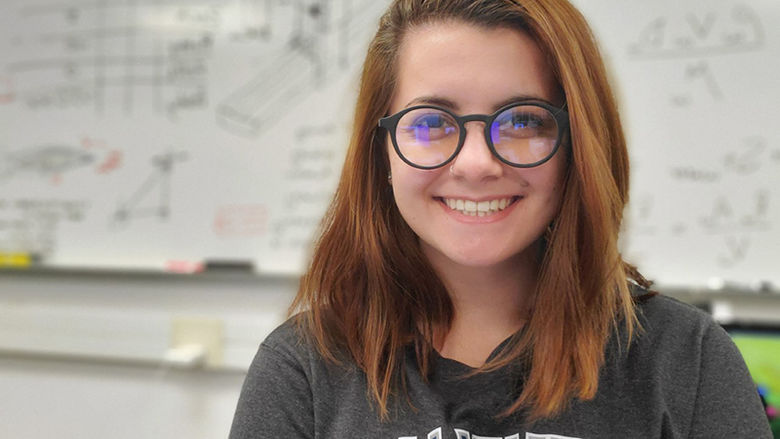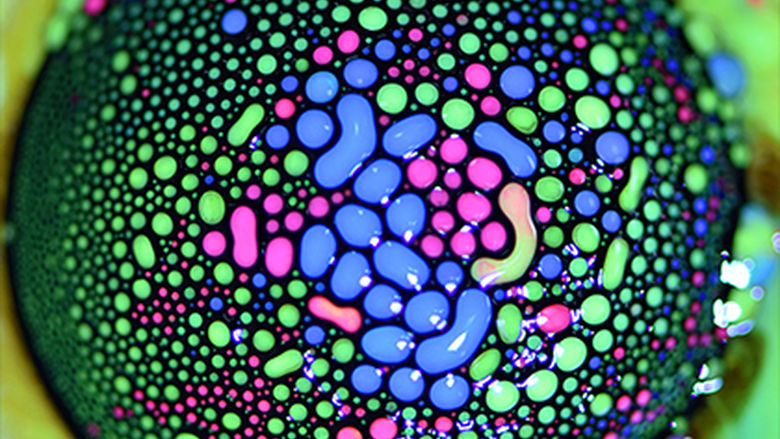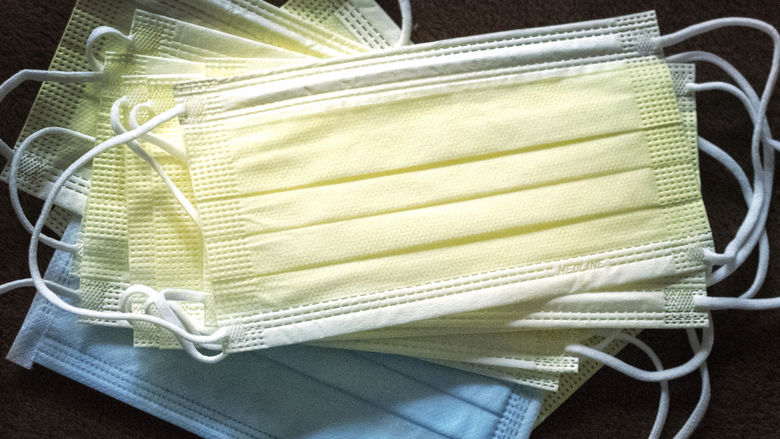
Azar Eslam-Panah, assistant professor of mechanical engineering at Penn State Berks, recently tested the effectiveness of face masks in the college’s Fluid Discovery Lab, the only such lab in the Penn State system. The group created a poster that depicts their work and recently submitted it to the American Physical Society, Division of Fluid Dynamics, Gallery of Fluid Motion.
WYOMISSING, Pa. — Face masks are considered one of the first lines of defense to slow the spread of the coronavirus. Azar Eslam-Panah, assistant professor of mechanical engineering at Penn State Berks, recently tested the effectiveness of face masks in the college’s Fluid Discovery Lab, the only such lab in the Penn State system.
Eslam-Panah, the lab's director, and her group created a poster that depicts their work and recently submitted it to the American Physical Society, Division of Fluid Dynamics, Gallery of Fluid Motion.
The poster explains the team's work: “It is believed that face masks can minimize the spread of droplets from coughs, sneezes, or regular breathing and talking. By placing various masks on a Styrofoam head and injecting dye through its mouth, we were able to demonstrate how differently they perform and outline the paths of droplets. It was found that cloth-based masks provide minimal stopping-capability for the tiny droplets; however, they are able to limit the speed of the out-coming jets significantly. Through dye flow visualization, it is shown that these masks can also avoid direct spread of droplets but there is some leakage through the top and bottom edges of the mask.”
The poster continues: “Without a proper mask, droplets are able to stay in the air for minutes to hours and spread throughout a room and build up if the air-conditioning system is poor. In reality, these droplets may land on healthy individuals and result in direct transmission; or land on any surfaces which can lead to infection when healthy individuals touch those surfaces. Tinier droplets are carried by wind and even upward drafts caused by the warmth of our bodies. Therefore, those droplets can travel even farther than the six-foot distancing guidelines currently recommended by the United States Centers for Disease Control and Prevention. We hope this study can visualize the rationale behind social-distancing guidelines and recommendations for using face masks. Wearing a mask is still important so make sure it fits tightly, follow local covid-19 prevention guidelines, and stay safe!”
In addition to Eslam-Panah, the team included students Cooper Kovar and Lisa Panczner, and Instructor in Photography Heidi Reuter.
In March 2017, Penn State Berks unveiled its new Fluid Discovery Lab, the newest state-of-the-art engineering laboratory in the Gaige Technology and Business Innovation Building and the only open access laboratory dedicated to the study of fluid dynamics in the Penn State system. Designed and constructed under the guidance of Eslam-Panah, the lab provides an opportunity for students to conduct undergraduate research and perform experiments, reinforcing classroom theory through practical application in fluid dynamics. Eslam-Panah’s research focuses on the physics of flows using a range of experimental techniques that can be extrapolated into engineering applications. Her research interests include unsteady aerodynamics of biologically inspired air and underwater vehicles and fluid dynamics in human bodies.
For more information this study, email Eslam-Panah at aue10@psu.edu.





